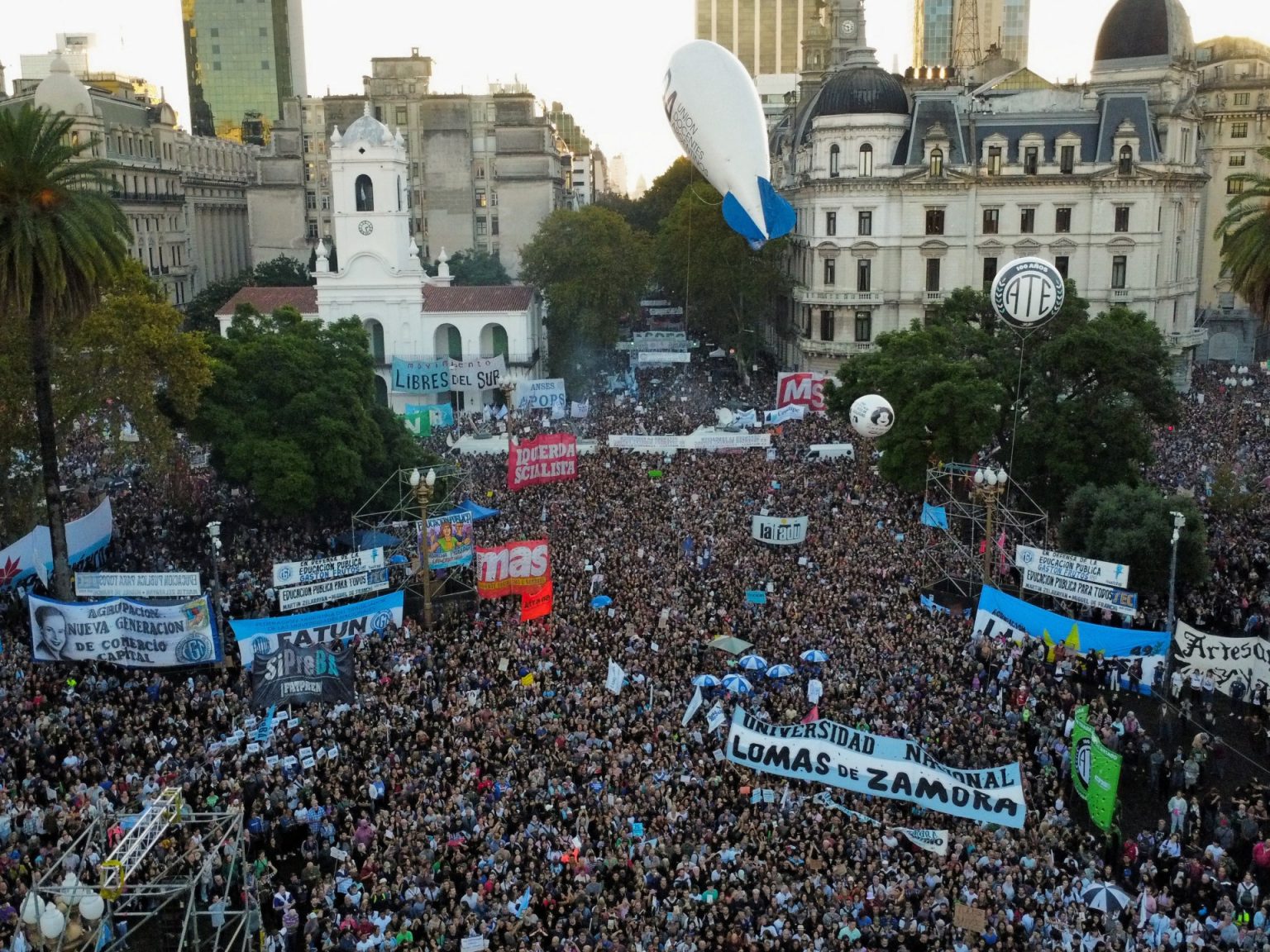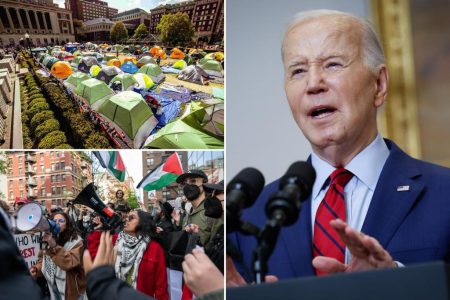Hundreds of thousands of Argentines took to the streets to protest cuts to higher public education under President Javier Milei, who has been implementing austerity measures since taking office in December. Students, professors, parents, and alumni from the 57 state-run universities in the country rose up in defense of free public university education. The protests were backed by labour unions, opposition parties, and private universities, making it one of the largest demonstrations against Milei’s policies.
In Buenos Aires and other major cities like Cordoba, protesters paralysed the city centres for hours, with police estimating around 100,000 people in the capital alone. However, organisers claimed the number was closer to half a million, while a teachers union reported a million protesters countrywide. The demonstrations highlighted the outrage at the government’s actions, especially in the midst of an economic crisis that has seen a significant reduction in purchasing power for wage earners and job losses for thousands of public servants.
One student, Pablo Vicenti, expressed his frustration at the government’s “brutal attack” on the university system, stating that there is money available but it’s being diverted away from public education. Milei, who won elections on a platform of cutting public spending and reducing the budget deficit to zero, has faced backlash for his austerity measures, including cuts to subsidies for transport, fuel, and energy. Despite the widespread protests, the government dismissed them as being politically motivated.
The protests against the cuts to higher public education are reflective of the broader discontent among the Argentine population over the government’s austerity measures and their impact on essential services. With public servants losing their jobs and citizens grappling with a significant decrease in purchasing power, there is a growing sense of frustration and anger towards Milei’s administration. The support from various sectors, including labour unions and opposition parties, demonstrates the widespread opposition to the government’s policies.
As the protests continue, the debate over the future of public education in Argentina intensifies. Students and educators are determined to defend free public university education and are demanding that the government prioritize funding for the university system. The large-scale demonstrations serve as a powerful message to Milei and his administration that the people are united in their rejection of the austerity measures that threaten the accessibility and quality of education in the country. The protests also underscore the deepening social and economic challenges facing Argentina and the urgent need for sustainable solutions that prioritize the well-being of its citizens.















